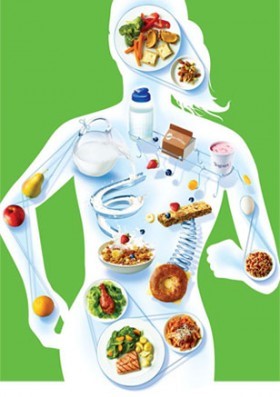This blog is inspired by the many questions that the therapists at our facility get pertaining to nutrition plans and inflammation. Nutrition is a growing trend today. People are more aware of what they are eating and the effect it may have on their body. You have likely heard of many different types of foods that are known to promote inflammation in the body. Our goal in this blog will be to identify some of those common treats and help you establish a plan to not completely subtract, but to substitute. The reality is that if there is a guilty pleasure in your nutrition plan and it has been part of your daily routine for years, it is likely hard to omit. But perhaps what we can start to think of is addition and eventually substitution. For example, if you are someone who must have a small bag of potato chips and diet soda with lunch each day, try also adding a portioned snack of walnuts or almonds and seltzer water with a squeeze of lemon. The nuts will give your body that crunch that it often seeks out and the seltzer water will provide that little bit of carbonation without the overload of sugar. Eventually you may find that “hey I can do without the chips and soda”. The most important thing to remember when it comes to changing your nutrition plan is that you must make it realistic for yourself. Establishing a realistic goal is the first step to changing your lifestyle. Focusing on nutrition is just that, a lifestyle change. Many people use the term “diet”. The problem with diets is that they are temporary. People go on diets for a week or a few days. In regard to changing your approach to nutrition, you should look at it as a change in lifestyle.
Inflammation is your body’s way to protect itself from infection, illness or injury. As part of the inflammatory response, your body increases production of white blood cells, immune cells and substances called cytokines that help fight infection. While this process occurs naturally in the body and is mostly beneficial, our body’s ability to shut off this process can sometimes become inhibited causing a chronic buildup of inflammation. Chronic inflammation can lead to tissue damage, swelling, joint degeneration and ultimately pain. Research shows that the foods we eat can directly contribute to the cyclical nature of the inflammatory process. For individuals experiencing chronic pain and inflammation a simple change in nutrition strategies along with proper exercise and regulated sleep regimen may be the solution to achieving wellness.
What should we limit
Dairy products- 60% of our population do not have the gene required to break down dairy. As a result this causes a reaction that promotes inflammation. Consider substituting nondairy alternative such as coconut and almond milk.
Red meat and processed meat in excess- Commercially produced meats are fed with grains like soy beans and corn, a diet that is high in inflammatory omega-6 fatty acids but low in anti-inflammatory omega-3 fats. Consider limiting red meat serving to 6 oz portions. This is a case where buying organic truly is beneficial. Organic, free-range animals that are fed a natural diet such as grasses instead of grains and hormones contain more omega-3 fats. Having more room to roam freely, they are also leaner and contain less saturated fat.
Refined grains- Includes white rice, white flour, white bread, cereal, pasta. These grains have a higher glycemic index than unprocessed grains and when they are consistently consumed, can hasten the onset of degenerative diseases. Consider 100% whole grain, but be careful that the product truly is whole grain as packaging can be misleading.
Processed foods- Quick and easy, but contain a high level of Trans fats. Look out for hydrogenated oil, margarine and/or vegetable shortening. Quite simply, AVOID!
What should we add?
Hydrate, hydrate, hydrate- Drink water and drink enough of it. This simple adjustment helps to flush our body of waste product that can be damaging to our tissue.
Anti-oxidants- Including beans, some berries, and leafy greens into our diets can help promote anti-oxidants which are known to combat the inflammatory response.
It is most important to remember that even with all of these ideas considered; the inflammatory process is most responsive to a sedentary lifestyle. Consult a physician, physical therapist, or nutritionist regarding an appropriate exercise regimen in conjunction to your new nutrition plan.


